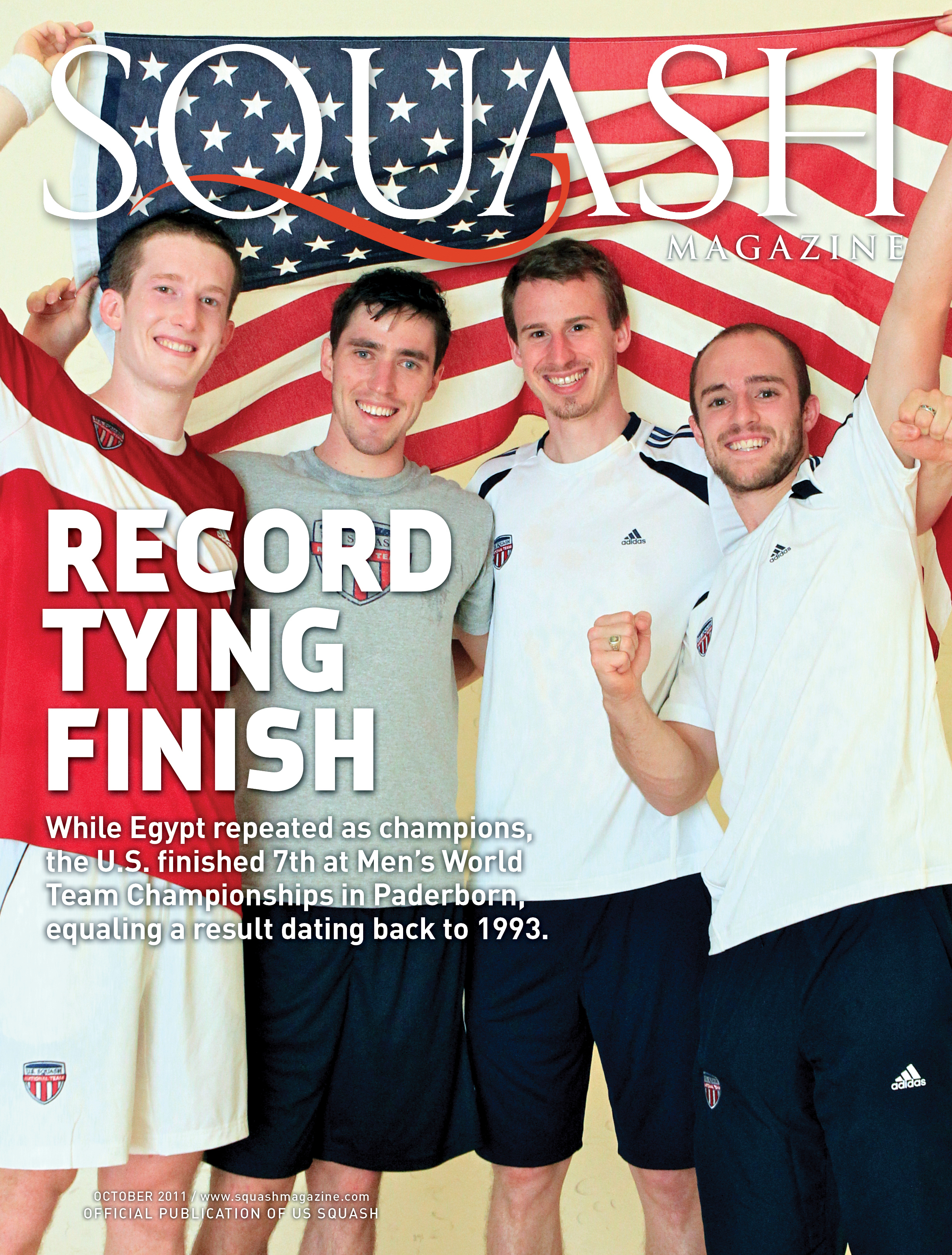By Jay D. Prince
A couple of weeks ago, I was at my son’s high school football game thoroughly enjoying watching him put all of his effort into knocking would-be tacklers from the opposing team’s defense off their feet.
That same week my daughter played in a very physical soccer game. She’s just five feet tall on a good day, and all of 105 pounds soaking wet, but she’s tough as nails and has no problem taking on taller and bigger players as the last defender back trying to keep the ball out of her goal- keeper’s hands.
For the most part everyone in the stands at both the football and soccer games are supportive and shy away from chastising officials, coaches or players that make mistakes or just don’t do things the way they would like to see them done. Unfortunately, it’s the few parents that do insert themselves into the games that leave a lasting impression.
This got me to thinking about the Code of Conduct that U.S. SQUASH requires at all of their junior (and adult) tournaments. So I spent five minutes online and downloaded the Sportsmanship and Conduct Guidelines (you can find them easily: www. ussquash.com, then look them up under the “Parents and Fans” tab). The last para- graph says:
Players shall be held liable for misconduct by his or her family members and coaches (“the entourage”) at US Squash sanctioned tournaments. Misconduct by a member of the entourage shall include, but is not limited to: (i) a flagrant violation of the Sportsmanship and Conduct Guidelines; (ii) language, gestures or actions which defame, berate or otherwise bring into disrepute the tournament, its staff or its participants at any time during an event; (iii) interference of any kind with a Tournament Director, tournament staff member, referee, player or member of an opponent’s entourage during an event.
Ouch! And I don’t say that because of the penalties. I say “Ouch” because it’s shameful that it is even necessary for U.S. SQUASH to feel the need to print such guidelines; though I’m not so naive as to think that this sort of thing doesn’t happen.
One parent at my son’s football game was screaming at the coaches and his own son when they took him out of the game for a few minutes. I’ve seen parents at my daughter’s soccer games, though thankfully only from the opposing team, voice their displeasure at referees and players.
We all tend to get wrapped up in the games our children play, just as we do with our own participation in sports. But as we begin another season of junior squash, take a few minutes with your junior players and talk about why they play the game. I know there is a lot riding on squash for juniors hoping to play in college. And I know the vast majority of them want to win, probably more than you realize.
One thing I know for certain is that your junior player(s) is very much aware of you while they are playing. They know you are watching, and they most definitely know when you don’t like something—whether it’s something they did, or their opponent did, or the referee did. And that awareness alone can rock their world when it comes to focusing on playing the game.
Most of you reading this are probably wondering why this is an issue at all which is a good thing, because it means you aren’t an overzealous parent. Even so, ask your junior player sometime how they feel about you when they are playing. You might be surprised at what they have to say.
If I were writing the “Guidelines” for junior squash, I would add one thing: rent the movie, Searching for Bobby Fischer, if you haven’t already seen it. If you have seen it, watch it again. Not only is it a very good movie, but the message in it for parents is perfect. Besides, it’s about chess, and I’m sure you know squash is often referred to as “physical chess.”
Let the games begin!


